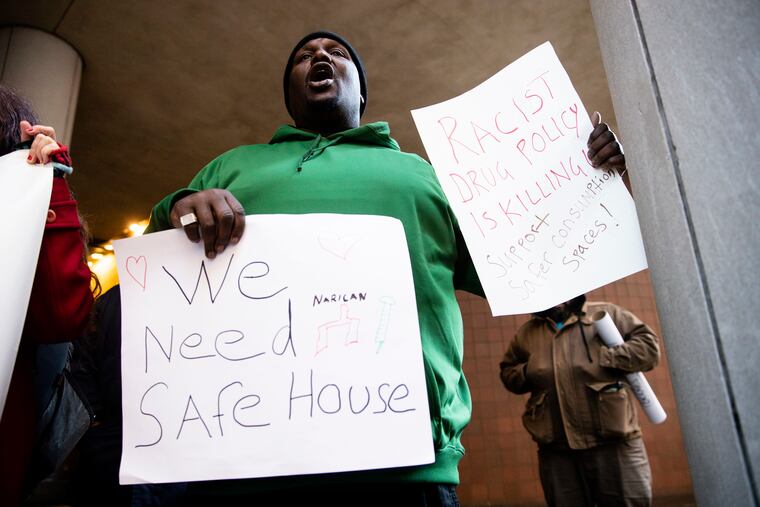As overdose deaths rise in Philly, New York begins a lifesaving effort that we’ve so far failed to take | Editorial
With the city's efforts to create supervised injection sites stalled in court — and with lives on the line — it may be time for the mayor to assess the legal risk of opening them anyway.

Overdose deaths have been a bleak constant in our city for nearly five years now, and, despite promises from city officials to do something about it, things seem to only be getting worse.
Philadelphia is on pace for a record number of fatal overdoses this year, according to the Department of Public Health’s preliminary statistics from the first half of 2021. There is no pocket of the city that has been spared from the risk posed by a toxic supply of drugs.
» READ MORE: Drug deaths in Philadelphia could set another record in 2021
These deaths are especially maddening because they are preventable. Fentanyl, the potent synthetic opioid, was involved in 80% of the city’s fatal overdoses in 2020. Each one of those lives could have been saved if naloxone, the opioid overdose reversal medication, was administered quickly.
One way to ensure that occurs is by creating spaces, with supplies of naloxone on hand, where people can use drugs while being supervised.
In January 2018, Mayor Jim Kenney’s administration announced its support for supervised injection sites. For the past two years, Safehouse — a nonprofit overdose prevention group — has been engaged in a legal battle to get federal courts to authorize a site — first winning in district court in 2019 only to be reversed on appeal earlier this year. The effort has been stuck in limbo ever since.
Meanwhile, New York City (with a third of Philadelphia’s overdose death rate) opened two supervised injection sites last month. During the first week of operations at the sites, nine overdoses were reversed. Nine lives saved.
State lawmakers could have given Kenney’s support of injection sites some legal backing, had Pennsylvania passed a bill similar to one in Rhode Island, but Harrisburg has shown no interest in furthering overdose prevention measures. President Joe Biden’s administration could also help, issuing an order stating the Department of Justice won’t prosecute harm reduction establishments — an approach federal officials took in the past with regard to marijuana dispensaries.
» READ MORE: Pa. lawmakers must legalize syringe services programs | Opinion
But the law isn’t the only barrier a supervised injection site in Philadelphia faces. When there was a legal window for a site to open, and a South Philly location was announced, residents rejected it. It’s imperative that the Kenney administration assess the legal risk of becoming Safehouse’s landlord by offering space in one of the city’s buildings or health centers. There is no more powerful response to those who shout “not in my backyard” than for Kenney to open a supervised injection site in his.
Snubbing federal law, particularly after a court ruling, is not a step to be taken lightly. But Kenney had the courage to do so when President Donald Trump’s administration attempted to deny Philly funding because it served as a sanctuary city (a fight the mayor won). If Biden, who has shown compassion and empathy about his son’s drug use during the 2020 campaign, wants to order his Department of Justice to raid an overdose prevention site at a time when an average of three people die in Philadelphia of fatal overdoses every day — let him try.